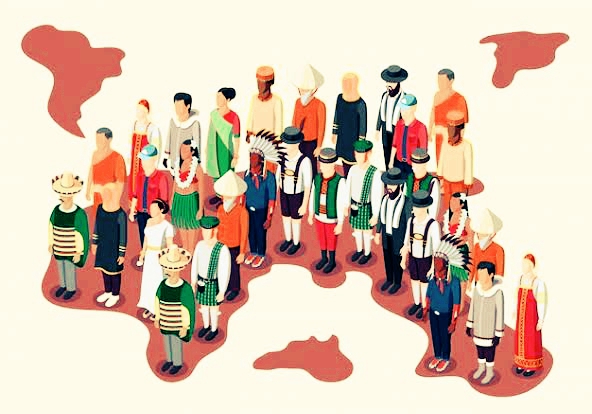
Conflicts are as old as human civilization and societies handle them speaks volumes about their values, social structures and collective psyche. Disputes are an inevitable part of human interaction, arising from differences in values, beliefs and interests.
From the formal courtrooms of Western democracies to the communal decision-making of Indigenous tribes, cultures around the world have developed distinct methods for addressing and resolving disputes. Understanding these approaches provides valuable insights into the fabric of societies and the fundamental principles that guide human relationships. In this blog, we will explore how different cultures address conflicts, highlighting the diversity of methods used around the globe.
1. The Individualistic vs. Collectivistic Divide
One of the most fundamental distinctions in dispute resolution lies between individualistic and collectivistic cultures.
Individualistic Cultures:
Predominantly found in Western societies, such as the United States and much of Western Europe, individualistic cultures emphasize personal autonomy and self-expression. Dispute resolution in these contexts often involves direct confrontation or formal mechanisms such as legal proceedings.
The U.S. and the U.K., for example, rely on a combination of litigation and arbitration to resolve conflicts. These systems emphasize procedural fairness, evidence, and precedent, with the aim of reaching an objective resolution based on the rule of law. Individuals are encouraged to advocate for their own interests and mediators or judges play a crucial role in deciding outcomes based on legal precedents.
Collectivistic Cultures:
In contrast, collectivistic cultures, often seen in parts of Asia, Africa and Latin America, prioritize group harmony and relationships over individual interests. Here, resolving disputes typically involves indirect communication and consensus-building. Mechanisms such as mediation by respected elders or community leaders are common, focusing on restoring harmony and maintaining social bonds rather than assigning blame.
2. Communication Styles: Direct vs. Indirect Approaches
Communication styles significantly influence how disputes are approached and resolved.
Direct Communication:
Cultures that favor direct communication, like those in Germany or the Netherlands, encourage individuals to express their thoughts and feelings openly. This straightforwardness can lead to quick resolutions but may also escalate tensions if not handled carefully.
Indirect Communication:
Many East Asian cultures, including Japan and China, prefer indirect communication. In these societies, harmony is paramount and individuals often avoid confrontation. Instead of expressing disagreement openly, they may use subtle signals or non-verbal signals to convey their feelings. Dispute resolution, therefore, often involves a lengthy process of building trust and understanding before addressing the conflict itself.
3. Conflict Resolution Methods: Formal vs. Informal
The methods used to resolve disputes can be broadly categorized into formal and informal mechanisms.
Formal Mechanisms:
In cultures where the rule of law is paramount such as in the United States or the United Kingdom, disputes often escalate to formal legal systems. Courts, arbitration and mediation services are established to ensure that conflicts are resolved according to predetermined laws and regulations, providing a structured approach to conflict resolution.
Informal Mechanisms:
Conversely, many cultures rely on informal mechanisms for conflict resolution. In Indigenous cultures, for example, community circles or storytelling may be used to address disputes. These approaches often emphasize restorative justice, where the goal is to heal relationships rather than impose punitive measures.
4. The Role of Religion and Spirituality
Religion and spirituality can also play a significant role in how disputes are resolved. In many cultures, religious beliefs inform conflict resolution practices.
Religious Mediation:
In cultures where religion is central such as in many Middle Eastern countries, religious leaders often mediate disputes. They use religious texts and principles to guide the resolution process, framing conflicts within a moral and ethical context.
Spiritual Practices:
In some Indigenous cultures, spiritual practices may be employed to resolve disputes. Rituals, ceremonies or community gatherings can help create a sense of unity and understanding allow individuals to address conflicts in a way that aligns with their cultural values.
5. Globalization and Cross-Cultural Disputes
As globalization brings cultures into closer contact, understanding how different societies approach dispute resolution becomes increasingly important. Businesses and individuals working across cultural boundaries must navigate diverse conflict resolution styles to foster collaboration and avoid misunderstandings.
Cultural Competence:
Developing cultural competence, understanding and respecting different cultural perspectives can enhance dispute resolution efforts. By adopting a flexible approach that considers the cultural backgrounds of all parties involved, individuals can facilitate more effective and harmonious outcomes.
Hybrid Approaches:
In multicultural settings, hybrid approaches to dispute resolution are emerging. Combining elements of both formal and informal mechanisms can create a more inclusive environment, allowing for a diverse range of voices to be heard.
We can say that Dispute resolution is a complex interplay of culture, communication and context. By recognizing the diverse ways in which cultures respond to and resolve conflicts, we can enhance our understanding of human interactions and promote more effective, respectful approaches to conflict resolution whether through formal legal channels, traditional community practices, or a blend of both, the ways cultures resolve disputes are as varied as the societies themselves. Each method provides a lens into the values and priorities of different communities, offering valuable lessons in empathy, justice and reconciliation.










